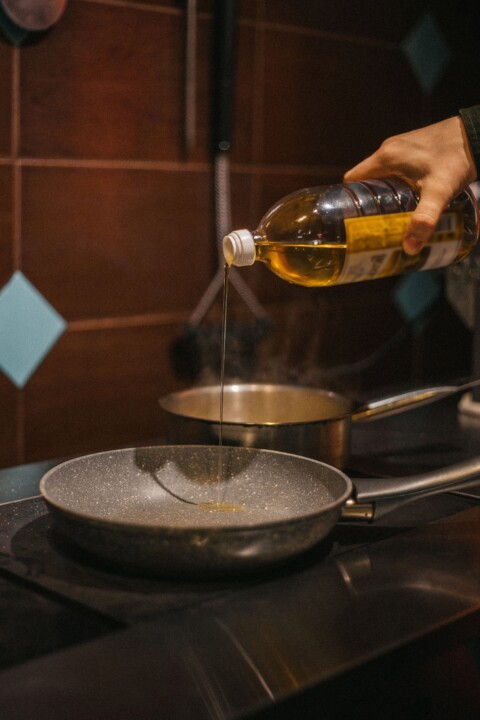- Michael Okech, a pork lard vendor, is making serious money by selling pork fat, which is cheaper than industrial cooking oil
In recent months, the soaring prices of cooking oil have transformed it into a luxury item for many financially strained Kenyans. The global rally in edible oil costs has been the primary driver behind this steady increase in commodity prices.
To cope with the rising expenses, consumers have resorted to purchasing salad oil in bulk quantities, which they then divide into smaller units. Customers now bring their own containers to buy quarter, half, or full liters of cooking oil.
Related post: Kenya Ranked 4th Richest in Africa in Terms of Millionaires
However, even this approach has become unaffordable for many, as most shops now sell a liter of salad oil at an average price of Sh.200, up from the previous Sh.150.
One group heavily impacted by these price hikes is businesses that heavily rely on cooking oil, such as potato chip vendors, fish fryers, mandazi makers, bhajia sellers, and samosa producers.
Yet, amidst these challenges, Michael Oketch, a pork lard vendor along Jogoo Road, has found an opportunity to turn this crisis into a profitable venture. Michael initially opened a pork butchery last year, selling meat to customers.
However, as demand grew, he received inquiries from buyers interested in pork oil, sparking an idea that would become a new source of income.
Related post: Jalang’o Rebrands Youtube Channel, Offers New Employees 50% of Profits
Michael’s journey began by visiting an abattoir on the outskirts of Nairobi where he bought pork meat. To his surprise, the fatty parts were being sold at significantly lower prices compared to the regular cuts.
While a kilo of normal pork meat cost Sh.300, he discovered that a kilo of fatty parts was sold for Sh.50. Intrigued, he purchased 10 kilos of fatty parts for Sh.500, which yielded approximately seven liters of oil. He sold this oil at Sh.130 per liter, earning him Sh.910.
Since then, Michael’s success has been unstoppable. Currently, he purchases around 30 kilograms of pig fat daily, extracting approximately 26 liters of pork lard through a heating process. He can sell up to 20 liters of oil per day to wholesale buyers, earning Sh.2,600. If he sells to retailers, he can make Sh.3,000 by selling at Sh.150 per liter.
Related post: Nairobi MCAs Call for Increased Funding for Condoms
Michael’s primary customers consist of fish frying businesses along Jogoo Road, Burma Market, Gekomba Market, and samosa and bhajia fryers along Eastlands road.
“I never anticipated that this business would grow so quickly. It has even surpassed pork meat sales. I believe that as long as cooking oil prices remain high, more customers will come,” Michael said.
Apart from the affordability aspect, many customers are attracted to pork lard due to its nutritional value. Experts assert that oil is an excellent source of vitamin D, a nutrient that many people are deficient in today.
Research conducted by the Weston A. Price Foundation in 2011 revealed that lard from pasture-raised pigs contains 1100 IU of vitamin D per tablespoon.
- Related post: Report: Nakuru Leads With Highest Poverty Rate in Kenya
Lard is also rich in fats that support heart health. After olive oil, which consists of 77% monounsaturated fatty acids, lard has the highest percentage of monounsaturated fats at 48%. These fats aid in lowering blood cholesterol levels and maintaining healthy cells.
Unlike most vegetable oils, which are unsuitable for high-heat cooking due to oxidation, lard maintains its integrity at high temperatures, boasting a high smoke point.
Additionally, lard contains choline, a nutrient linked to various health benefits. Low levels of choline have been associated with a higher risk of heart disease, Alzheimer’s, and liver problems.
Lastly, food cooked with lard offers an incredible taste, enhancing the flavors of roasted vegetables, grilled meats, and baked goods.
In conclusion, as we always say, no marathon race has ever been won by those who did not start running. If you find the aforementioned idea appealing and have the necessary resources to implement it, don’t wait any longer—just go for it.







